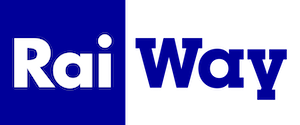Rai Way has adopted an Internal Control and Risk Management System (ICRMS), which, alongside rules, procedures, and organisational structures, allows us to conduct business in a healthy, fair, and coherent way, with predetermined objectives. This is achieved through a suitable identification, measurement, management, and monitoring process of the main risks.
The ICRMS is integral to the organisational and corporate governance framework: it is a key element of our entire governance system and plays a central role in our company’s organisation.
The planning, implementation and maintenance of the ICRMS and its periodic assessment are all based upon the principles of the Corporate Governance Code and best practices, complying with the CoSO Report (Committee of Sponsoring Organisations of the Treadway Commission, Internal Control, Integrated Framework). The latter is the internationally accepted framework for integrated functioning, analysis and assessment of the ICRMS.
The implementation of an effective and efficient ICRMS promotes an informed decision- making process. It also contributes to ensuring the protection of corporate assets, the efficiency and effectiveness of corporate processes, the reliability of financial information, and compliance with laws and regulations, the Bylaws and internal rules. Therefore, the corporate compliance models structured and organised in accordance with applicable statutory provisions, are an integral part of the ICRMS.

